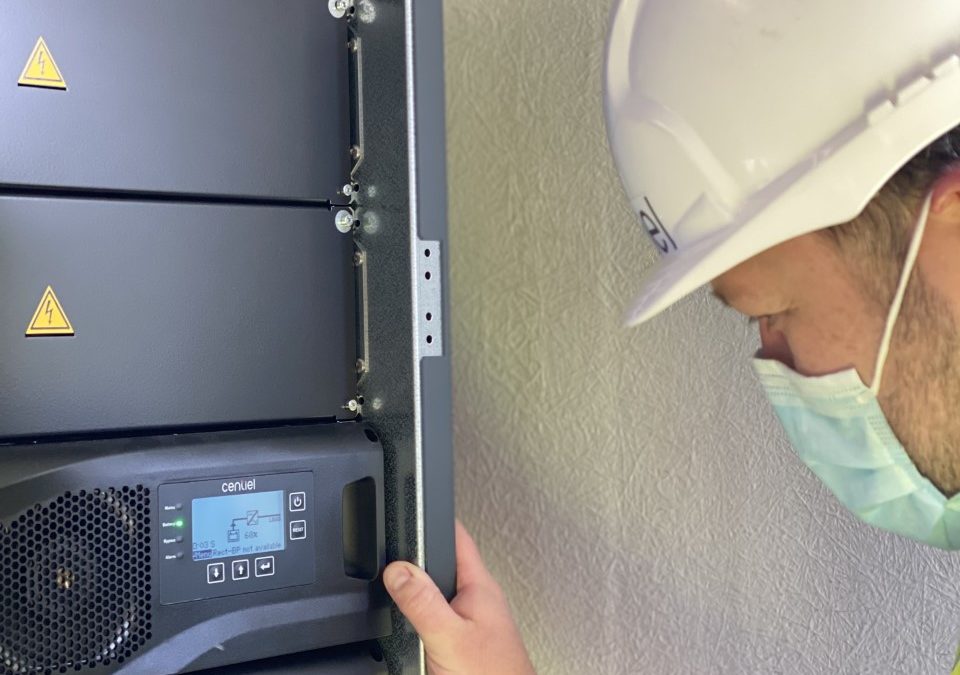By Louis McGarry, Sales and Marketing Director, CENTIEL UK
When purchasing new equipment or replacing a legacy UPS system, inevitably facilities managers will become involved in writing a Request for Proposal (RFP). As manufacturers of UPS systems designed to protect critical loads, the most common mistake we see is the tendency to ‘get a quote based on what we had last time’.
There is no doubt that power protection is a complicated subject! However, adopting a ‘let’s replace like for like’ approach fails to take advantage of the latest advancements in technology which can save on running costs, the overall efficiency and total cost of ownership of the system. Buying ‘like for like’ also may not take into consideration the behaviour of the load over time, which may effect efficiency and costs, as well as adding risk.
Every site and installation is unique and has its own specific needs. Detailing these within the RFP can help ensure facilities managers deliver the right solution in budget and on time.
So, to write a workable RFP, what information should be considered?
Objectives
Detail the overall objective of the new or replacement UPS. Defining what the critical load is and its importance, allows the power, autonomy and resilience requirements to be established.
Resilience
Creating resilience means removing single points of failure to guarantee an appropriate level of power protection. Increasing resilience needs to be balanced with cost and risk. Consider prioritising resilience as this will help mitigate risk and remove any unplanned costs associated with loss of load.
Power
Understanding the historic behaviour of the load can determine future load increases or decreases, and help define the required power rating for your UPS. Oversizing, can result in an inefficient UPS system and unnecessary CapEx. Under sizing puts the load at risk and can be just as costly as this requires spending more to resolve the issue.
Battery Autonomy
It is amazing how many RFPs don’t include the level of battery autonomy, also known as runtime. The time the back up power needs to be made available to support the load, depends on site requirements. For example, would ten minutes be enough time to undertake a safe shutdown or transfer to a disaster recovery site? Other sites such as medical facilities, are governed to comply with a set of standards which require a minimum of a one hour runtime.
Limitations
Within the RFP, detail any limitations on site. The type and size of the UPS may be dictated by the available power at site.
Room size and accessibility can also impact UPS system capability and battery autonomy. Include details of any restrictions, such as access routes, dimensions and floor loading. What about road closures? Is there a need to crane equipment? Sharing this information upfront will save time and issues during the design and implementation stages.
Installers also need to know where their area of responsibility starts and finishes and what elements of the build belong to other contractors and to the client or facility. Including a floor plan as part of the RFP can help to optimise layout for both installation and long-term maintenance.
UPS Maintenance
Facilities should understand how much they will need to budget to maintain the UPS system over its operational life. Therefore, best practice would be to include a request for a quote for a minimum of five years maintenance including the level of response time required. Technical support should be included as standard. Fully comprehensive preventative UPS maintenance contracts, where all repairs and labour are included are ideal for clients who don’t want unbudgeted expenses.
Avoid assumptions and appreciate that the more information provided, the more accurate the proposal will be. If in doubt, ask your supplier to conduct a full site survey to establish the power, autonomy and resilience required to protect the critical load.
Are you considering replacing a legacy UPS system? Contact sale@centiel.co.uk to request a site survey from one of our Technical Sales Engineers. Alternatively you can contact our UPS maintenance support team on 01420 82031.
This article was originally featured in Tomorrow’s FM Magazine March 2022

